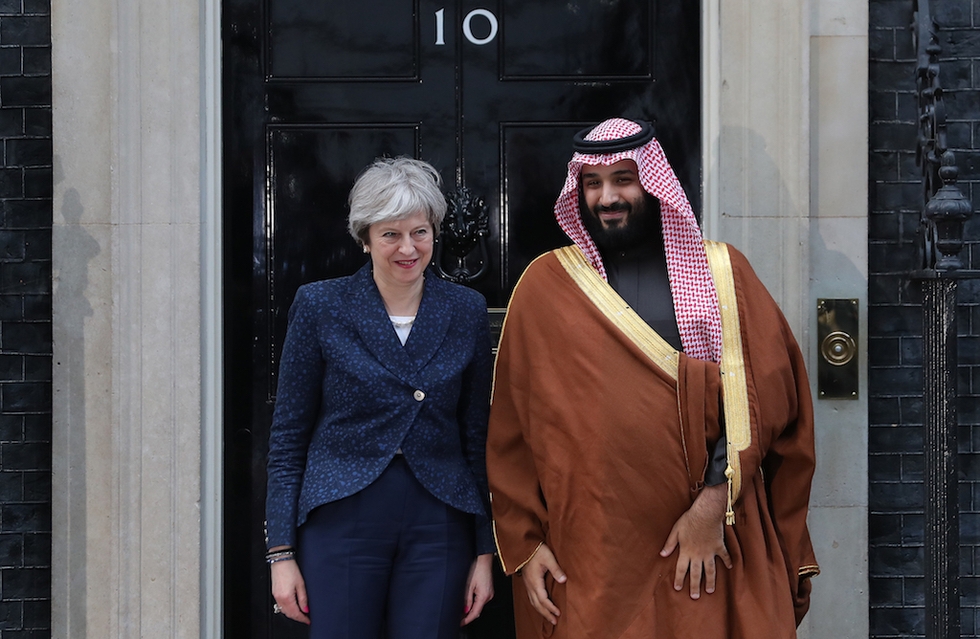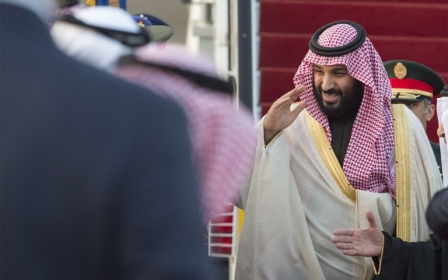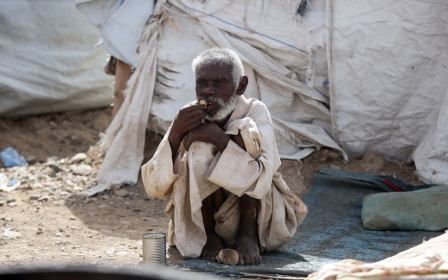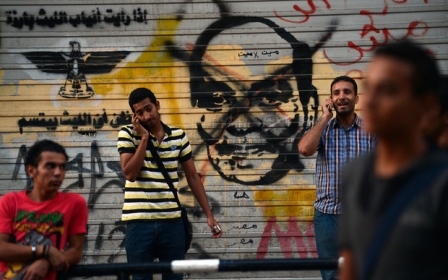Saudi execution rate doubles under MBS, says rights group

Saudi Arabia's execution rate has doubled since Mohammed bin Salman was appointed crown prince in 2017, according to the anti-death penalty rights group Reprieve.
The group said 133 executions have taken place in the eight months since his appointment last June, compared with 67 in the eight months before.
There have been 33 executions so far this year, roughly split between people convicted for murder and drug dealing.
Beneath his glossy public image, Mohammed bin Salman is one of the most brutal leaders in the kingdom’s recent history
- Maya Foa, Reprieve director
Reprieve said Saudi Arabia was on track for a record 200 executions in 2018 if that accelerated rate continues. It said several of those on death row in Saudi Arabia were convicted of crimes while still children.
Maya Foa, the group's director, said: "The doubling of executions under the new crown prince reveals that, beneath his glossy public image, Mohammed bin Salman is one of the most brutal leaders in the kingdom’s recent history.
"Protesters, including some who were children at the time, have had the death penalty confirmed despite allegations of torture and forced confessions.
"When she meets the crown prince, Theresa May should urge him to commute the sentences of all child protesters facing execution.”
The prime minister was on Wednesday forced during questions in parliament to defend Britain's relationship with Saudi Arabia. Jeremy Corbyn, the opposition leader, asked May: "As she makes her arms sales pitch, will she also call on the crown prince to halt the shocking abuse of human rights in Saudi Arabia?"
May responded: "The link we have with Saudi Arabia is historic, it is an important one, and it has saved the lives of potentially hundreds of people in this country. I will be raising concerns about human rights when I meet him."
Reprieve said 18 young men are currently facing imminent execution for protest-related offences under Saudi Arabia's wide-ranging “anti-terrorism” laws. Eight of those were children at the time of their alleged offences.
It pointed to assurances by the former British prime minister, David Cameron, that the issue of child prisoners on death row would be addressed.
"In October 2015, Cameron pledged, in an interview with Channel 4 News, that he would intervene in the case of three Saudi protesters, Abdullah Hasan al-Zaher, Ali al-Nimr and Dawood al-Marhoon, who were facing beheading despite being children at the time of arrest," the group said.
"The then foreign secretary, Philip Hammond, later told the House of Commons he had received assurances Ali and others would not be executed. Despite this, the three still have not had their death sentences commuted and face imminent execution. Reprieve is aware of five other juveniles in the same position."
Pakistanis are the most incarcerated
Thousands of Pakistanis imprisoned in Saudi Arabia and dozens sentenced to death in the ultra-conservative kingdom have been denied their legal rights to a defence, a report in Islamabad warned on Wednesday.
Saudi Arabia executes more Pakistanis than any other foreign nationality annually, nearly all for heroin smuggling, according to the study by Justice Project Pakistan and Human Rights Watch (HRW).
Sixty-six Pakistanis were beheaded in the country between 2014 and 2017 alone, the report entitled "Caught in a Web" said.
"You not only have the death sentence, but you have it without due process or elementary fair trial," Saroop Ijaz, an HRW researcher, told AFP.
Pakistani migrants are "exceptionally disempowered and marginalised," Ijaz told AFP, adding that the group faces a "premodern discriminatory" criminal justice system in Saudi Arabia.
With 1.6 million nationals, Pakistanis constitute the second largest foreign community in Saudi Arabia, and most are members of a low-skilled workforce with few rights.
Some 2,795 Pakistanis are currently imprisoned in Saudi Arabia, the study says.
According to Saudi media reports, a Pakistani man was executed on Tuesday in Mecca, convicted of drug trafficking.
Four others were sentenced last month for raping and killing a woman and raping her teenage daughter, according to the Saudi interior ministry.
Detained Pakistanis "have braved a system that puts them in periods of detention without charge or trial, no access to legal assistance, pressure on detainees from the authorities to sign confessions and accept predetermined prison sentences to avoid prolonged arbitrary detention," said Sarah Belal, executive director for JPP.
Yet the report stressed that Pakistan's government "has not shown either the willingness or the capacity" to provide legal protection for those facing criminal charges in Saudi, the report read.
Under the kafala system in force in Saudi Arabia, which regulates the status of migrant workers, many are prohibited from changing jobs before the end of their contract if their employer objects to it - a restriction which NGOs call forced labour or even slavery.
Middle East Eye propose une couverture et une analyse indépendantes et incomparables du Moyen-Orient, de l’Afrique du Nord et d’autres régions du monde. Pour en savoir plus sur la reprise de ce contenu et les frais qui s’appliquent, veuillez remplir ce formulaire [en anglais]. Pour en savoir plus sur MEE, cliquez ici [en anglais].




